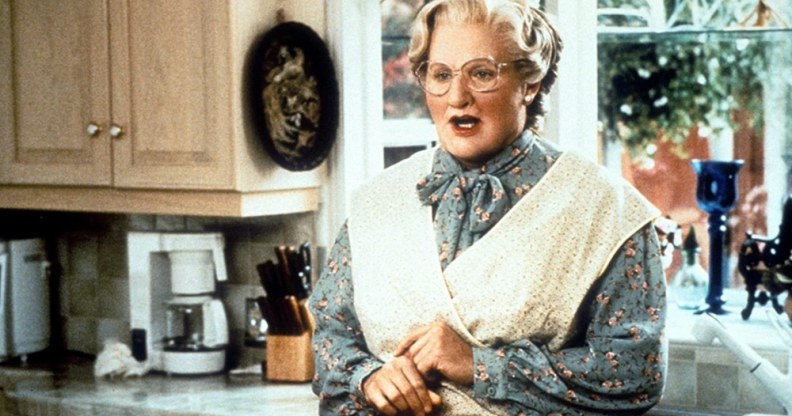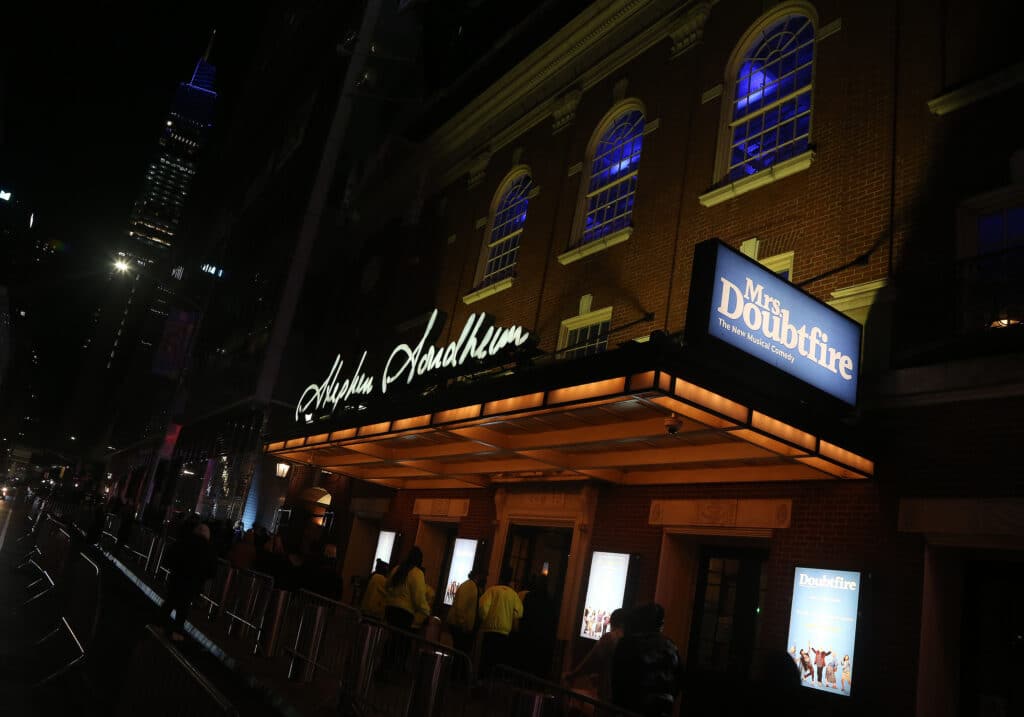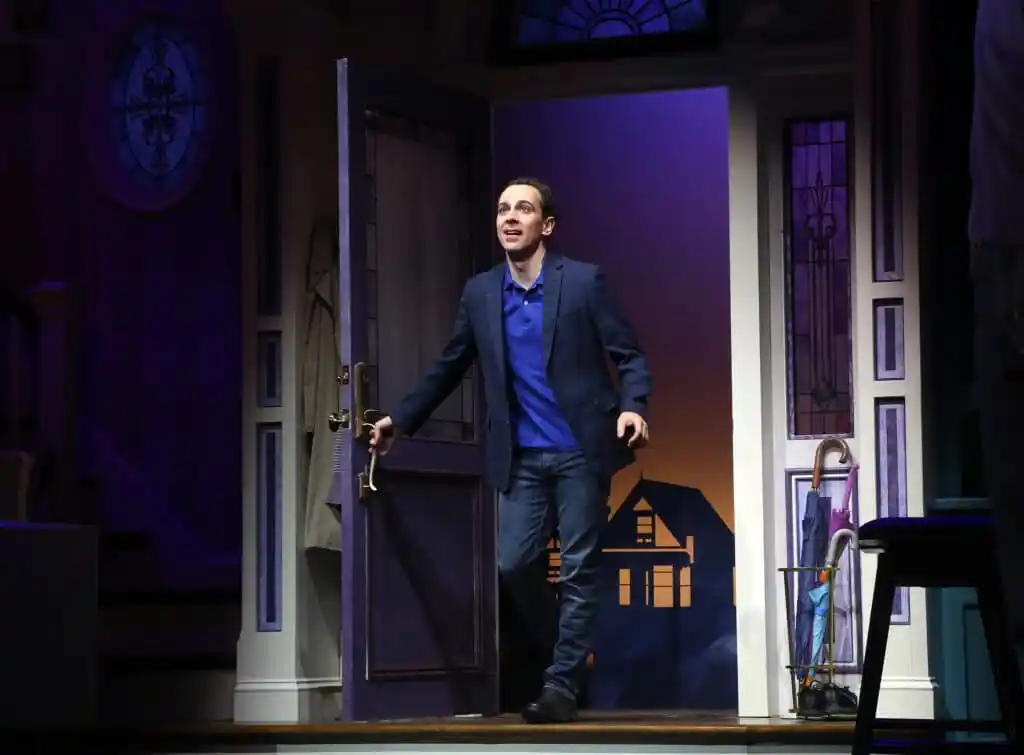Mrs Doubtfire musical opens on Broadway and lets just say the response is mixed, dears

Robin Williams in the original Mrs Doubtfire film. (IMDb)
The decision to stage a Broadway musical remake of Mrs Doubtfire has been criticised as tone-deaf.
The original 1993 film about a man who dresses as a dowager to sneak into the home of his estranged wife has long been regarded as a classic.
One of Robin Williams’ most iconic and camp comedies, it’s been called the “opening salvo” in a pop culture war that touched off greater LGBT+ acceptance.
But ultimately, its story is focused on straight, cisgender characters and relies on some problematic tropes – so the decision to revive it for a Broadway that famously struggles with diversity has been meet with some criticism.
“Let’s be clear,” tweeted Transparent and The Conners star Alexandra Billings, as the new show opened, “the total number of transgender and non-binary performers on Broadway at this moment could fill the front seat of a Volkswagon.
“We are not just under-represented. We are non-existent. And this show isn’t helping.”

Opening night of Mrs Doubtfire at The Stephen Sondheim Theatre. (Bruce Glikas/Getty Images)
Other users expressed similar concerns. “I love the Mrs Doubtfire movie, but I do not think it’s something we need on Broadway right now,” tweeted a user.
“Especially taking up the space where a new musical with actual trans and non-binary representation could be running.”
Another added in response to the negative reviews: “Wow, it’s almost like trans people have been voicing their concerns since this started and knew it would be better for it not to happen.
“Broadway listen to trans and non-binary performers challenge!”
Press pans Mrs Doubtfire musical for feeling ‘cheap and retrograde’
Variety noted in its review of the Mrs Doubtfire musical that it has “little if anything to say about what it means to be a man or a woman […] but in the context of rapidly evolving conversations about gender diversity, with real stakes for trans and non-binary people, the musical’s central manoeuvre feels cheap, retrograde and like little more than a gimmick.”
Vulture, meanwhile, said the musical is seemingly haunted by “transphobia” and that its misdirected attempts to assure audiences that the main character is not trans are done so in a clumsy way.
During one number, “Make Me a Woman”, brother Frank (Brad Oscar) affirms Daniel’s gender identity. “If he wants to be a woman, he has every right to be!” he says.
Then Frank’s husband, Andre (J Harrison Ghee) hits back: “That’s not what he’s talking about. He’s talking about putting on a disguise to deceive his ex-wife.”
As bluntly Vulture put it: “The creative team dusts its hands; they’ve taken care of people thinking this is a musical about transenss! No one can be offended now!”
Mrs Doubtfire follows in the footsteps of Tootsie: a 1982 film about a cis man pretending to be a woman in order to get what he wants, adapted into a Broadway musical in 2019.

Rob McClure during the opening night curtain call for the new musical based on the film Mr. Doubtfire on Broadway. (Bruce Glikas/Getty Images)
That show was met with criticism. As queer theatre critic Christian Lewis put it for American Theatre, “the whole musical revolves around a never-ending “man in a dress” gag, a trope that’s rooted in transmisogyny”.
The makers of Mrs Doubtfire appeared to be fearful of a similar reception, with reports back in 2019 that Tootsie’s early closure was “scaring the hell” out of them.
At the time GLAAD corrected reports it was consulting on Mrs Doubtfire, but said it was open to future conversations.
“Neither Tootsie nor Mrs Doubtfire has a transgender character, both stories involve cisgender men wearing dresses,” a rep told Playbill at the time.
“Transgender women are certainly not men in dresses, but in our current culture, people continue to confuse and wrongfully conflate the two.
“One of GLAAD’s roles is to work with content creators to educate them about tropes and stereotypes that affect LGBTQ people, and GLAAD’s conversations with Tootsie — and potential future conversations with Mrs Doubtfire – revolve around helping them identify the context of these tropes.”

